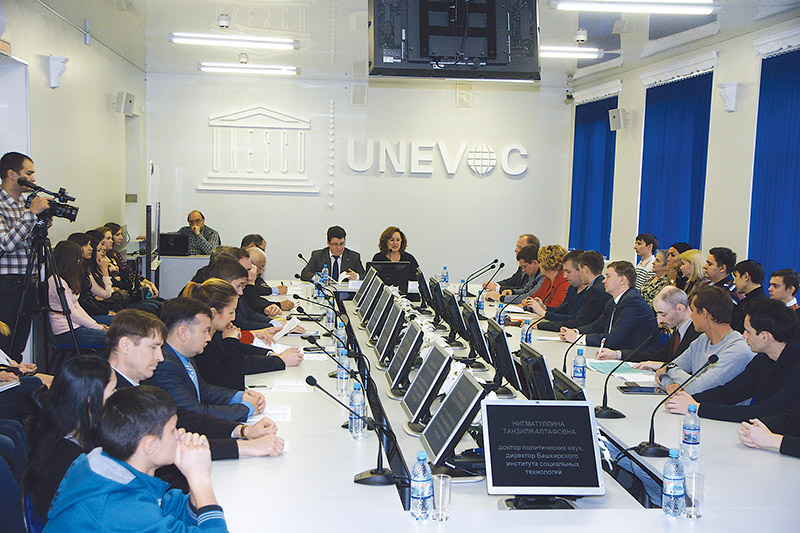
The round table on the topic “Regionalization of migration processes in the conditions of Russian federalism” took place on October 22, 2014 at the Bashkir Institute of Social Technologies.
Migration is one of the most relevant and complex problems in modern Russia. Regionalization of migration processes in the conditions of globalization has become a new impetus for the placement of accents in adjusting migration policies of modern states. Professional management in modern conditions the process of external and internal migration in Russia is largely dependent on a large-scale modernization of the environment in which they occur. The opinion of scientific and expert community has value on the issue of migration processes of conceptualization and justification.
The discussion was attended by leading Russian experts: V.V. Schmidt, Dr. Phil., Professor of department of National and Federative Relations RANEPA (Russian Presidential Academy of National Economy and Public Administration) (Moscow); M.A. Fonarev, President of the Eurasian political science expert club (Moscow); R.A. Shagapova — Deputy Chairman of the State Assembly Committee — Kurultai of the Republic of Bashkortostan on agrarian issues, the environment and natural resources; I.U. Zulkarnay, doctor of economic sciences, professor of Bashkir State University, teachers and students of higher educational institutions of the republic.
What changes are waiting for the migration policy of Russia in the near future, how the tightening of immigration rules will affect the quality of migrant workers arriving in Russia from the countries of near and far abroad and how many migrant workers is really necessary for the normal development of the largest recipient state? Can a tightening of immigration legislation solve the problem of illegal immigration? These and other aspects were discussed energetically but very correctly. Positions were different even on the concept of “migration”. Speakers of the meeting — T.A. Nigmatullina, Doctor of Political Sciences, Professor, Head of the UNESCO-UNEVOC Centre in the Russian Federation, Director of the Bashkir Institute of Social Technologies, and V.V. Gayduk, Doctor of Political Sciences, Professor, Head of the Department of Political Science and History of the Bashkir State University — guided discussion in the right direction.
The meeting also touched the issues of migratory flows’ control, the formation of attitude towards migrants in the host society and the impact of migrants to the environment in which they are integrated. These issues are particularly important for the post-Soviet space, as in the process of nation building in the region diverse migration waves are put.
M.A. Fonarev mentioned contradictory nature of the migration policy in Europe and stressed that in society there are radically different positions regarding the border, should it be closed or not. At the same time, he admitted that it is impossible to completely ban migration in any case — both for economic and demographic reasons.
From I.U. Zulkarnay’s viewpoint, migration is much more economic than political phenomenon. However, this issue is often used by politicians in the populist purposes, to attract attention before the elections.
A.R. Suleymanova and M.A. Belyaev gave other positions about the migration’s definition. Each of them brought their arguments and objections. Accordingly to students, they have been directly involved in this scientific debate.
During the discussion, it was decided on the overall need for further development of this problem, focusing on every single aspect of the migration situation and the mechanisms of interaction between migrants and the host society.

 October 23rd, 2014
October 23rd, 2014  ALINA B.
ALINA B.  Posted in
Posted in